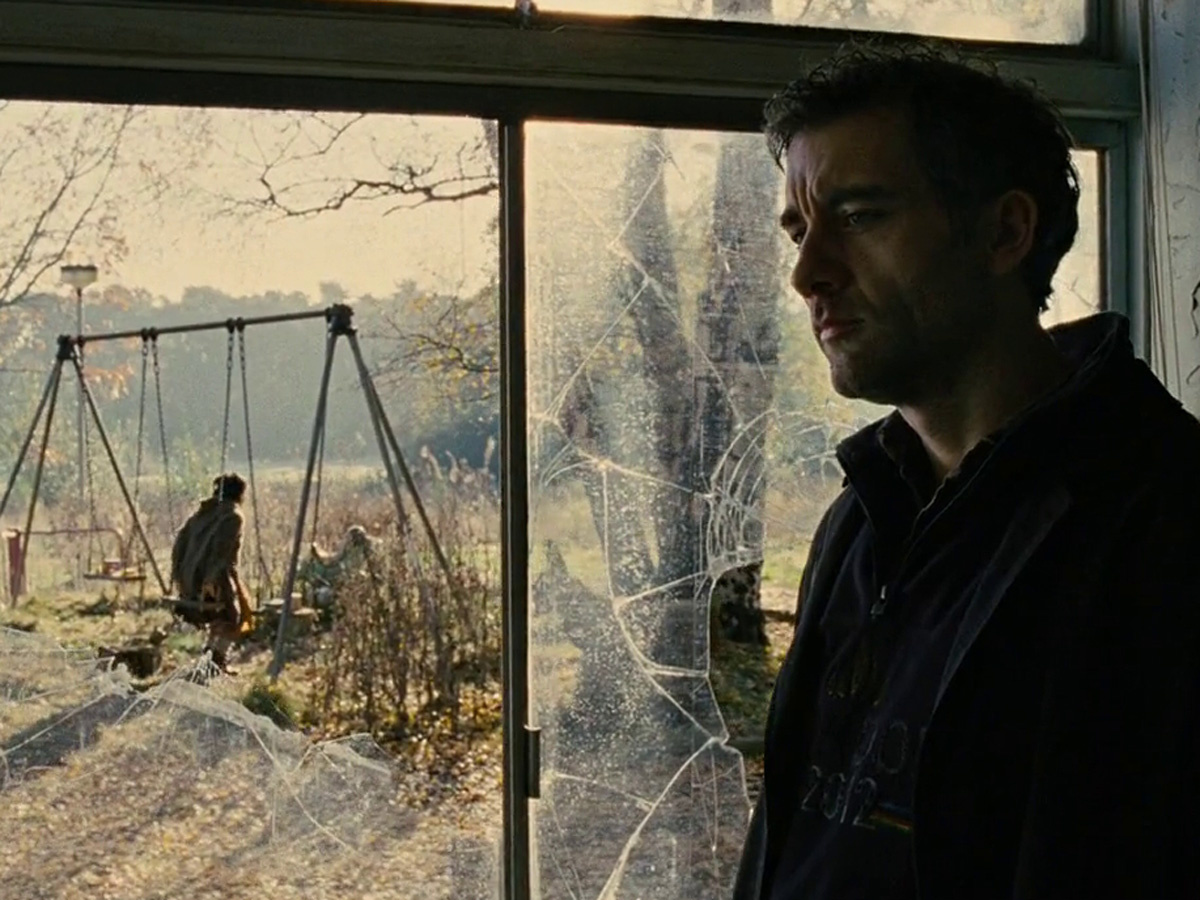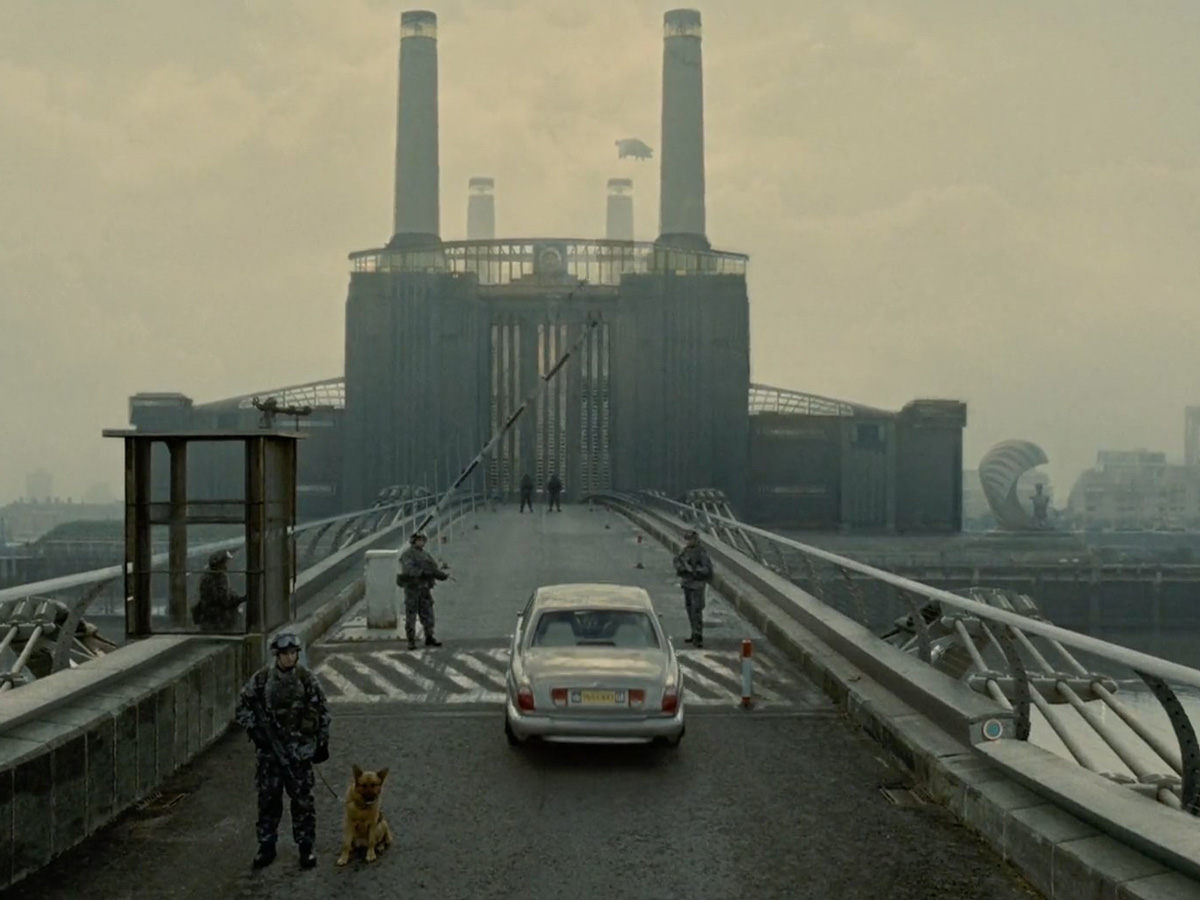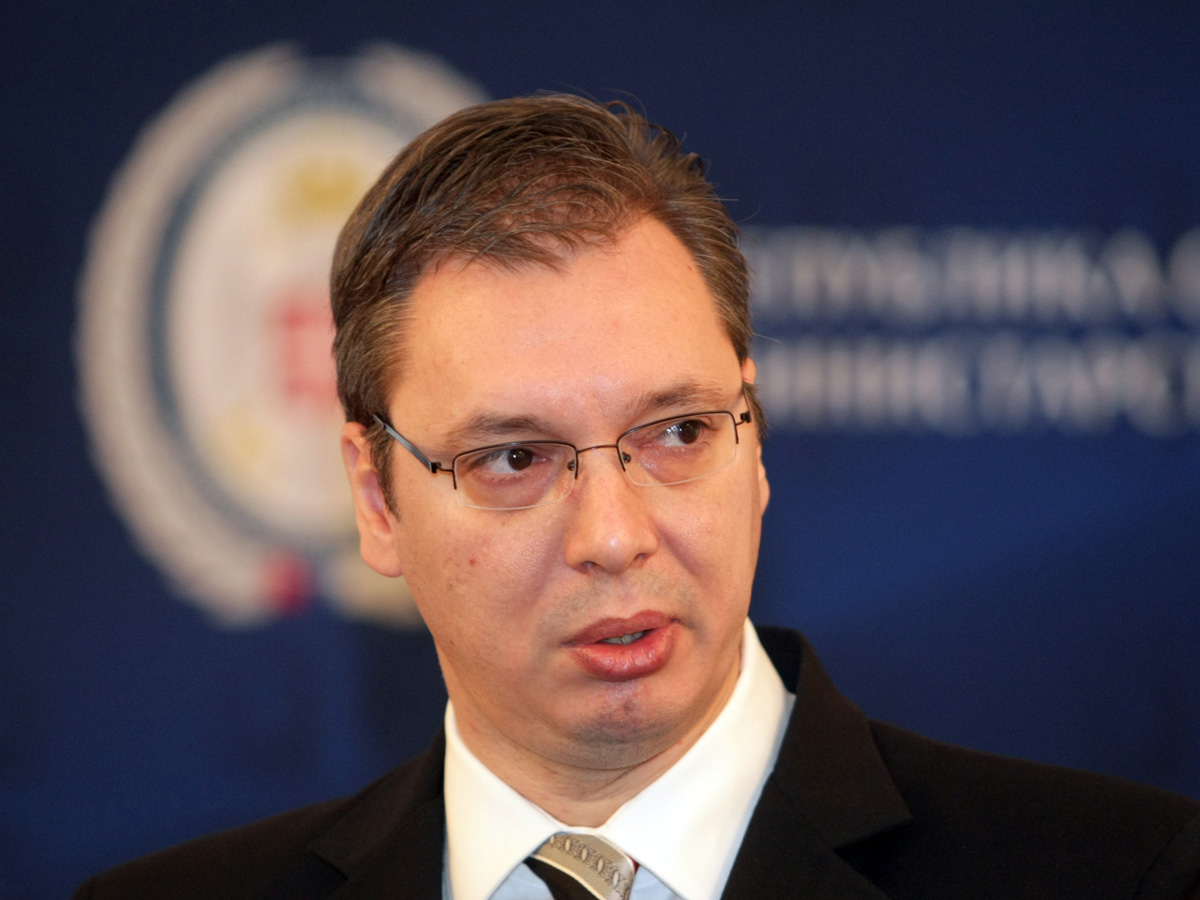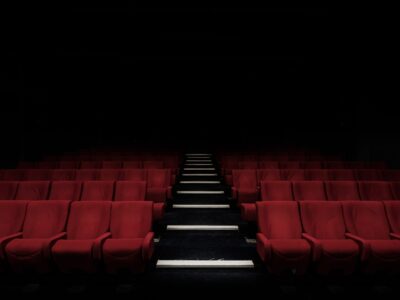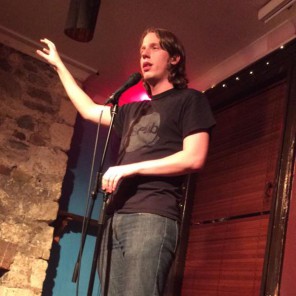FEATURE: ‘Children Of Men’ Ten Years On
Fedor looks at the horrorshow that has been 2016, through the lens of seminal film ‘Children Of Men’.
2016 has been a pretty terrible year if you, like me, believe that humanity is capable of crafting a humane, equal society…
2016 has been a pretty terrible year if you, like me, believe that humanity is capable of crafting a humane, equal society, in which people from all backgrounds can co-exist. Both Brexit and Donald Trump’s Presidency were campaigns ran on divisive, aggressive, ‘Us Vs Them’ language. Marine Le Pen is a front-runner for the French Presidential elections in 2017. The refugee crisis does not fill the front pages anymore, but it has not abated. Thousands have died this year trying to cross the Mediterranean, whilst the Calais jungle has been demolished by French authorities, with little to nothing done to aid the people whose lives are being swept under the carpet.
In this context, ‘Children Of Men’ is looking less like a brilliant tour-de-force of dystopian cinema and more an eerily prescient Nostradamian prediction. Released ten years ago, it portrayed a future Britain with no immigration whatsoever, controlled by a police state whilst the rest of the world has devolved into violent anarchy. Back when it was released, the 2008 recession had yet to happen, UKIP were a fringe party, and Donald Trump was still just a terrible reality TV star. True, the War on Terror was at its messiest apex, and George Bush was President. But fast-forward ten years, and suddenly the future presented in the film looks terrifyingly possible: reviews back then praised the film for its realness, but only in terms of how lived-in the film looked. Today the film looks real for altogether the wrong reasons.
Set in 2027, ‘Children of Men’ tells of a world in which the human race became infertile 18 years previously. Our protagonist, Theo Faron (Clive Owen), is an apathetic low-level government employee who gets kidnapped by the Fishes, a rebel group fighting for migrant rights led by Theo’s ex-lover Julian (Julianne Moore). The Fishes coerce Theo into escorting Kee (Claire-Hope Ashitey), a refugee who also happens to be the first pregnant woman for 18 years, to safety aboard a ship led by a mysterious group, The Human Project, based offshore.
The message is clear: the world has gone to hell.
The first half of the film is laden with extensively-detailed doom and despair; an excellent video essay by Nerdwriter explains how director Alfonso Cuarón and his cinematographer Emmanuel Lubezki introduce or finish many scenes by panning the camera away from our protagonist’s perspective to incidental details in the world around him, be it self-flagellating religious cults, stringent police checkpoints, or simply a stray dog sniffing around for food. The message is clear: the world has gone to hell.
Amidst all this, it is Theo’s passivity that is most striking. We are introduced to him in a café, amongst a crowd of shocked faces as news spreads that the world’s youngest person has been murdered. Theo ignores it and focuses on getting his coffee. He exits the café and moments later a bomb tears through it. Still, he goes to work that day. Later, he is seen walking past cramped cages full of rounded-up refugees pleading for freedom, barely stopping to glance. His friend, Jasper (Michael Caine), is an aging hippie and a retired political cartoonist, whose catatonic wife, the vigilant viewer notices, was formerly a photojournalist whose investigative work led to her being tortured by MI5.
Soon, we find out that Theo himself was a former radical political activist alongside his lover Julian. What kind of shift has to happen in a person that they go from energetic activism to utter apathy? It would take a special kind of emotional numbness to walk past the images that Theo walks past every day, including even a near-death experience, and to find oneself unfazed.
It should be noted that Jasper too has retreated in his activism. The trauma his wife underwent during torture has broken him as well; he has retreated to his off-grid country den and taken solace in the vagueness of chance and coincidence, a sunny optimist at odds with the reality around him.
Passivity almost kills him, asphyxiating his conscience into inactivity.
Over time however, Theo becomes an active character, not a passive bystander allowing events to happen to him. He doesn’t willingly become a hero, but it is as if his conscience eventually comes back, spurring him, slowly, cautiously, into action, guarding the vulnerable Kee to safety. Activity, awareness, willingness to do something are what allow Theo to do good. Passivity almost kills him, asphyxiating his conscience into inactivity.
The implication is that the passivity is not just the cause of Theo’s downfall, but society’s downfall too. It is the Theo’s of this world who didn’t voice their concerns at the ballot box at the US elections—over 40% of eligible voters didn’t vote, amounting to some 95 million people, more than there are in Germany—and it is the Theo’s of this world who represent the 28% who did not vote in the EU referendum. Not as huge a percentage, but enough to have swung a decisive vote in either direction. And voting is merely the bottom rung; look at the grassroots mobilisation apparent in Labour since Corbyn took power, encouraging people across the UK to engage in debate and critical thinking. Even Cuarón’s camera subtly encourages the viewer to actively scan the screen for information, instead of just passively watching the film hit its plot beats.
The level of inactivity seen in ‘Children of Men’ precipitates a government such as the one depicted in it, because if so many citizens are unwilling to stand up and be counted, then what defence is there against darker forces, a Britain where every human being without a British passport is rounded up and sent to cramped, disease-ridden refugee camps? If there is a large enough section of society which simply doesn’t care, then we are only ever a handful of steps away from the world of ‘Children of Men’.
That inactivity plays directly into the another warning shot from the film, that of state brutality. The police forces in the film are militarised and extremely aggressive; one scene has our protagonists stopped by two policemen, who draw their firearms whilst screaming ‘calm down and get out of the car’ although it’s hard to see how one can be calm when being screamed at. Bullying and open, public violence against people is completely acceptable in this future police force and one can easily draw parallels from this to the police oppression that necessitates the creation of movements like Black Lives Matter and the aggressive tactics used by police forces across Europe against migrants today, from the Calais shores to the border of Hungary.
But human beings are not born this way. The vast majority of us are simply not violent beings. Two infamous psychological experiments, the Stanford Prison Experiment and the Milgram Experiment, provided evidence that most human beings can be coerced into horrendous acts if provided with the right psychological and institutional context. A state with the resources to hand major powers to its security forces is capable of creating such a context and the last few years have seen a major extension of British security forces’ powers; The Investigative Powers Act has just been passed, giving state forces unmatched surveillance powers across the Internet and media communications.
Combine this with the language of dehumanisation and fear that’s becoming more acceptable in the media and mainstream politics; The Sun gladly published Katie Hopkins’ comments calling refugees ‘feral’ and ‘cockroaches’ last year; The Daily Mail is perfectly happy to fear-monger about Muslim refugees, accusing them of ‘despising’ Western values with little to no evidence; Donald Trump’s Chief Strategist Steve Bannon has, as editor of Breitbart News, published pieces praising the use of the Confederate Flag only weeks after Dylann Roof (who posed with it) murdered nine African-Americans in a chapel.
The cumulative effect of all this is to dehumanise Others, particularly those who aren’t from the ‘correct’ background. It starts slow, but unchecked it becomes a deluge. In my native Yugoslavia in the late ‘80s and early ‘90s, the news media and major politicians began to behave the same way, before our then-multiethnic country was torn apart in a series of near-genocidal wars. The absurd Martinović incident is emblematic of it all, when newspapers in 1985 jumped on a story of a Serbian farmer who had come into hospital with a glass bottle jammed in a rather unpleasant bodily location. The news uncritically reported that he blamed it on local Albanian Muslims, stirring up ethnic hatred, and when it was found the man had done this to himself, it was quietly forgotten about.
Later, our politicians said things like ‘they said my wife was a Serb or a Jew. Luckily for me she is neither’ (Franjo Tudjman, the first President of Croatia, died in 1999); ‘within a month the Muslims of Bosnia-Herzegovina will be destroyed’ (Radovan Karadžić, currently serving time in The Hague for war crimes); ‘for every Serb killed, we will kill 100 Muslims’ (Aleksandar Vučić, current Prime Minister of Serbia).
In Yugoslavia, other social groups were first dehumanised by the media and by politicians. Later, their rights were taken away. Eventually, it was their lives. The broad process is fairly similar in Nazi Germany and that is no facetious comparison, because the base structure of the process is the same. First there is apathy. Then there is dehumanisation. Then there is oppression. Then there is death. We in the UK are standing at a precipice. There has been apathy. Dehumanisation has begun. ‘Children of Men’ shows you where that goes.
But the film ends on a note of hope. It ends with Theo, bleeding but alive, and Kee, with her newborn baby, alone at sea, with the mysterious rescue ship approaching. Theo begins the film with such apathy and numbness the world around him, but it ends with him risking his life for a better future. He becomes part of a wider rebellion against the oppressive conditions that surround him. He refuses to lay down and allow things to happen to him. Instead, he instigates the movement and the action. Within action, within conscience and within anger at injustice, there rises hope.
If you’re in need of any support or want any more information on the work they’re doing and activities running, find these lovely ladies at Refugee Women of Bristol
And if you feel like getting those creative juices flowing get involved in acta community theatre– an arts/theatre charity engaging everyone in society.

About Rife


